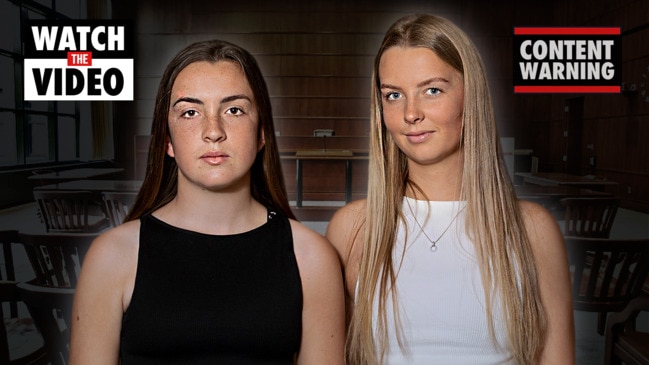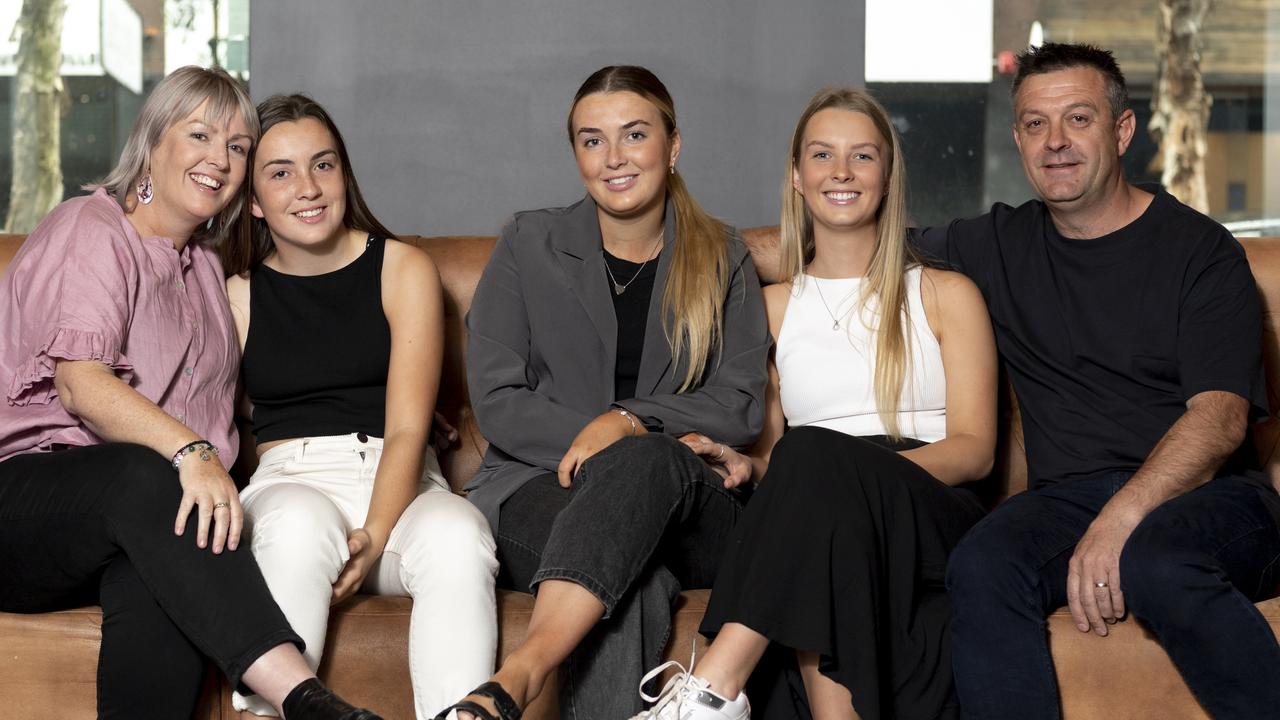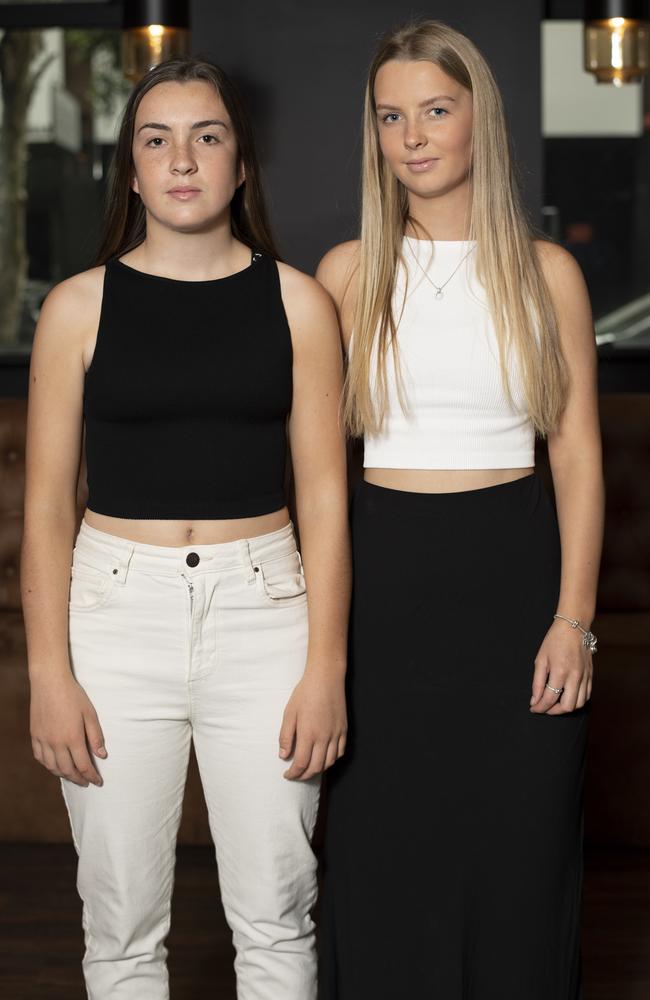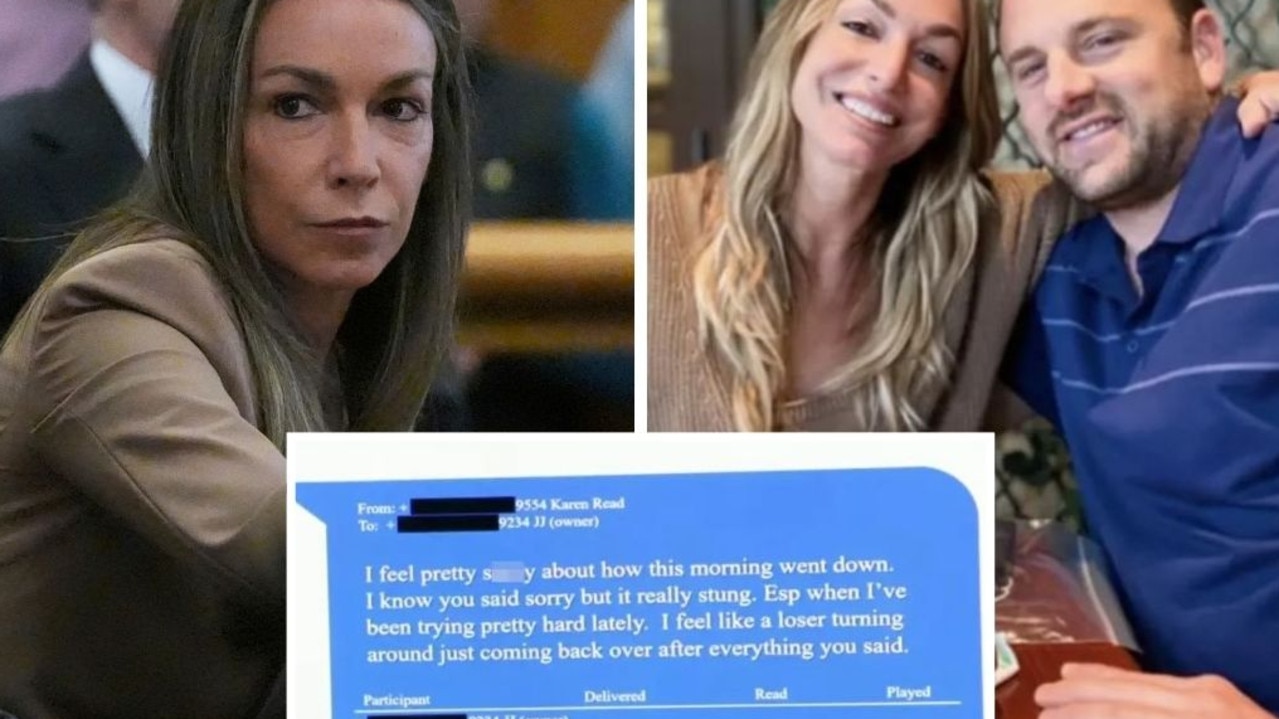Justice Shouldn’t Hurt: Incredible steps Rose and Pippa Milthorpe took to facilitate change
Rose and Pippa Milthorpe, still teenagers, took incredible steps to be able to speak out publicly about their childhood sexual abuse and the “trauma of the system”.

Today news.com.au is harnessing its unrivalled audience to drive change.
We want the 13 million Australians we reach every month to hear Rose and Pippa Milthorpe’s story. And we are using every platform available to us — our hugely popular website, Facebook, Instagram, Twitter, Apple News, YouTube and Tiktok, as well as our daily podcast “I’ve Got News For You”.
News.com.au is proud to give the girls a national platform so that the Child Sexual Offence Evidence can finally be made available throughout the state. And to help us get there, we need 20,000 signatures today.
Safety as our priority
Rose and Pippa are determined young women who have made the brave decision to waive their right to anonymity and speak out publicly about their childhood sexual abuse.
They want Australia to hear their story in the hope of educating others about the “trauma of the system” and facilitate change.
And while it is a privilege to be able to give them a national platform, it is not something news.com.au took lightly.
The safety of the girls, both teenagers, was our number one concern – and remains our priority.
In NSW sexual assault survivors can waive their right to anonymity in the media, provided they are 14 years or older.
While both girls are already 14, court permission was still needed as their case involved other children (who have not been named).
Over the past six months, the family has sought court permission to self-identify.
As part of the process of obtaining court permission both girls had to demonstrate to the judge that they had a sound understanding of the risks of speaking out publicly as survivors of sexual violence. They also had to demonstrate that they had not been coerced or pressured into wanting to tell their story.
They both met with counsellors and also engaged their own independent legal advice to better understand the legal, social and psychological risks of speaking out.
In September this year, the judge finally granted permission for the girls to be named.
At that point, there was no longer any legal barrier to news.com.au publishing their story. But just because we could run the story it didn’t automatically follow that we should.

Responsible reporting
Journalist Nina Funnell has been working with the family since June this year. Nina has more than 15 years of experience working with, and reporting on survivors of sexual violence. She has previously served on the board of NSW Rape Crisis Centre, the NSW Premier’s Council on Preventing Violence Against Women, and the board of Youth Law Australia.
She has been awarded a United Nations Media Australia award, an Australian Human Rights Commission Community (individual) award and multiple Walkley awards for her sexual assault survivor advocacy and reporting work.
Nina has also spearheaded multiple sexual assault survivor advocacy campaigns, including the highly successful #LetHerSpeak/LetUsSpeak campaigns, during which time she worked directly with more than 50 survivors of sexual assault, whose stories she reported.
With Nina’s assistance, we have proactively sought the views and engaged with seven different academics who specialise in related issues – including child development, media ethics, media law, criminology, and complex trauma – to better understand how to conduct this work safely and responsibly.
In preparing the series of stories we have also routinely engaged with Rape & Sexual Assault Research & Advocacy and, to a lesser extent, Bravehearts.
Due diligence
We progressed this story slowly, building in a six-month cooling off period to give the girls and their families multiple opportunities to reconsider their participation.
Both parents have been present during all interviews, photo shoots and other meetings involving the girls, and we are regularly in contact with the family to ensure appropriate support continues to remain in place.
We have elected not to name the offender and have removed all reference to the actual details of abuse. The focus of each story remains squarely on the impact of the court process, to reflect the wishes of the sisters.
Community support
The family has a strong support base in Albury, NSW. Over the past six months, the sisters have gone through a staged process of ‘coming out’ as survivors within their local community.
This has helped acclimate the girls to public exposure.
The community has held events to raise awareness about childhood sexual abuse, as well as raise funds and secure petition signatures. A school assembly was held to explain the issue and why the family was speaking out.
The sisters even completed a public charity bike ride for Bravehearts, riding from the Downing Centre in Sydney to Coffs Harbour, collecting petition signatures along the way.

The girls have led the process
Rose, 14, said stories like her own needed to be heard, “because they happen more often than people really know”.
“Not being able to tell my story is unfair and makes me feel trapped. I don’t want to feel ashamed of my story. I want to share my story so that other people – children in a similar situation – don’t feel ashamed and alone. We should not feel any shame,” she said. “I am sharing my story to try and make a difference. To change a law so that children don’t feel scared of the court process.
“The thing is, it’s my story and it should be my choice to share it with who I want.
“If I was old enough at five to give a police interview, and old enough at seven to be cross-examined for hours and hours, then why at 14 would I not be old enough to decide to tell my own story the way I want?”
Her sister Pippa, now 17, said she spent two and a half years being forced to share her “private hell through the undignified and unjust court process”.
“I need to get my power back,” she said. “I need my story to mean something, to affect a change that will make a difference for all the child victims who come after me.”
Every survivor’s story is different
Each survivor is different and what might be empowering, cathartic, healing or therapeutic for one survivor might cause trauma and harm to another. There is no perfect science to this field of journalism and in publishing these stories we do not suggest that this is an appropriate path for all others.
Every survivor deserves agency and control over their own story, and for some this may mean the decision to share, while for others there is bravery and agency in erecting and maintaining safe boundaries.




